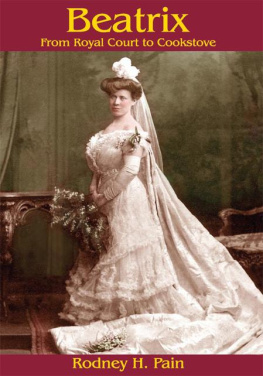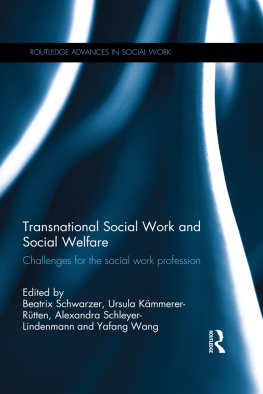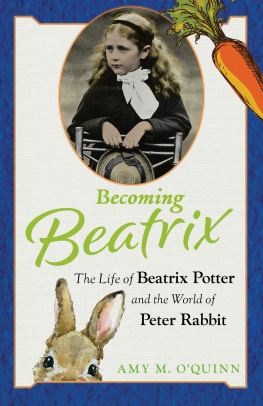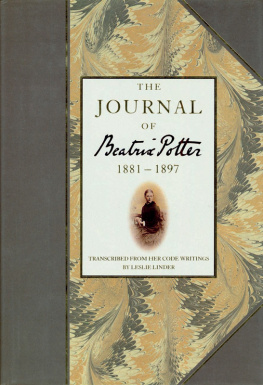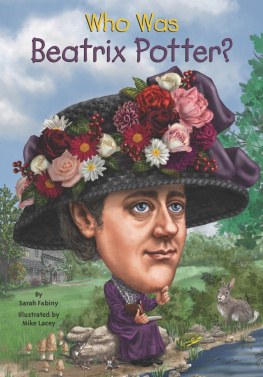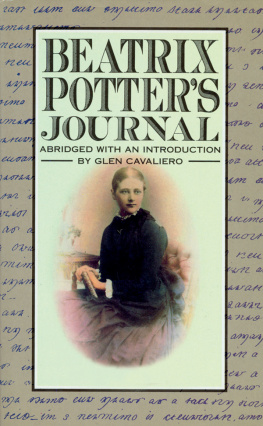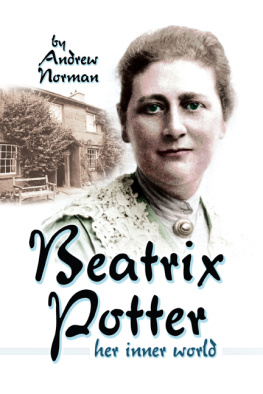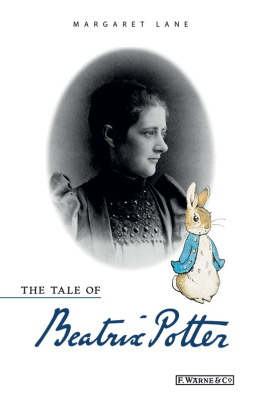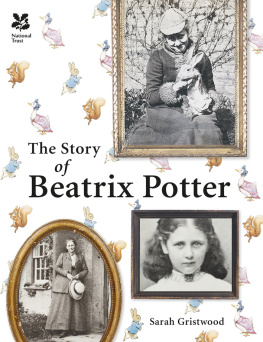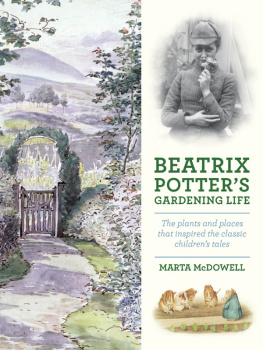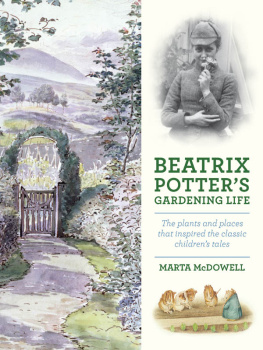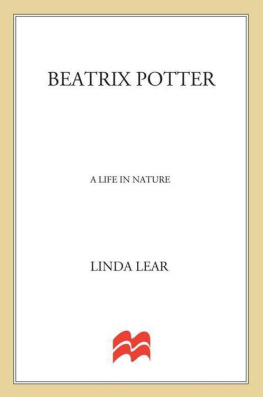Beatrix
From Royal Court to Cookstove
Copyright 2003 Rodney H. Pain. All rights reserved.
No part of this publication may be reproduced, stored in a retrieval system, or transmitted, in any form or by any means, electronic, mechanical, photocopying, recording, or otherwise, without the written prior permission of the author.
Printed in Victoria, Canada
Design of cover and inside pages by Jean Compton.
National Library of Canada Cataloguing in Publication
Pain, Rodney H.
Beatrix : from royal court to cookstove / Rodney H. Pain.
ISBN 1-4120-0482-9
ISBN 978-1-4122-1302-8 (ebook)
1. Pain, Beatrix. 2. San Diego (Calif.)-Biography. 3. Upper class womenEnglandBiography. I. Title.
F869.S22P33 2003 979.4985052092 C2003-903154-3

This book was published on-demand in cooperation with Trafford Publishing.
On-demand publishing is a unique process and service of making a book available for retail sale to the public taking advantage of on-demand manufacturing and Internet marketing. On-demand publishing includes promotions, retail sales, manufacturing, order fulfilment, accounting and collecting royalties on behalf of the author.
Suite 6E, 2333 Government St., Victoria, B.C. V8T 4P4, CANADA |
Phone | 250-383-6864 | Toll-free | 1-888-232-4444 (Canada & US) |
Fax | 250-383-6804 | E-mail |
Web site | www.trafford.com | TRAFFORD PUBLISHING IS A DIVISION OF TRAFFORD HOLDINGS LTD. |
Trafford Catalogue #03-0851 | www.trafford.com/robots/03-0851.html |
10 9 8 7 6 5 4 |
Contents
Beatrix
From Royal Court to Cookstove
Rodney H. Pain
I am grateful to Frances Linenthal who, with the help of Lincoln Pain, provided a new perspective on Beatrix life, and to Jean Compton, Hume Compton and Mary Shakespeare for their unparalleled editorial help.
Beatrix
From Royal Court to Cookstove
O to be in England
Now that Aprils there,
And whoever wakes in England
Sees, some morning, unaware,
That the lowest boughs and the brushwood sheaf
Round the elm-tree bole are in tiny leaf,
While the chaffinch sings on the orchard bough
In Englandnow!
Robert Browning, 18121889
London was hushed when Beatrix was born. Straw was strewn from cross street to cross street to quiet the noise of horse traffic. That was the way it was done, if your family had money.
One week later, on June 18, 1884, the little Minchin baby, her parents, godparents, the priest, family and friends gathered by the font in Edgewater Gate Church. The white-gloved ladies could not touch anything because London in the 1800s was very sooty. The ladies prayer books, bound in white kid leather with white kid slipcases, were carried by a footman or maid.
Scents of heliotrope, lilies of the valley, lavender and violets wafted luxuriously through the granite chamber of the church.
The men wore afternoon dresscutaway tails and spatsand carried an aura of eau-de-Cologne, dabbed on white handkerchiefs stuffed in their cuffs. Their hats, walking sticks and umbrellas were left by the front door. Dean Farrah of Durham Cathedral was as resplendent as the ladies, with lawn linen sprouting, almost gushing, from his collar and cuffs. He wore gaiters, buttoned up the side, and his hat brim was suspended from the rim by four chaste little strings, a sartorial gesture of unknown provenance.
The nanny handed the Minchin baby, dressed in a long white embroidered christening robe, to her mother. As the great copper lid of the font was pushed aside, the ritual of the High Church of England commenced:
Grant to this child the inward grace
While we the outward sign impart
As the holy water was poured from a small cruet onto the babys head, she started to cry. Her father, James, remarked:
Only a week in this world and shes complaining!
Her mother retorted:
What would you say if they poured cold water on your head
James marked his wifes contentious tone.
After a reading from the Gospel of Saint Mark and recitation of the Lords Prayer, the new godparents, relatives and friends raggedly intoned the childs name, Beatrix Mary and all renounced the Devil and all his works, covetous desires and carnal desires in Beatrixs name. They answered tentatively and unevenly, being more certain of Beatrixs name than the renunciation of the Devil. Dean Farrah, in good conscience, added in pulpit tones, We do renounce them all. With further exhortations, they baptized Beatrix Mary and crossed her forehead with holy oil. Beatrixs christening, as her birth, rang a high social note, reveled in by her mother, Mary Dickson Minchin.

In 1852, James Innes Minchin had marked Mary McLeod, seeing her beauty across the wide street from the balcony of his club in Madras. As she drove by in her fathers carriage, he was smitten and resolved to his companion: Ill marry that girl.
As a junior official in the Honourable East India Company, James was a promising suitor and, with the blessing and permission of her father, James married the beautiful Mary. She kept his company through twenty-five years of Indian heat, hundreds of miles of travel by palanquin, horseback, carriage, rickshaw, and train. From Bombay to Calcutta, from Madras to Darjeeling, from the coast to the Himalayas, she followed his postings, with the children and their whole entourageamahs, cooks, punka pullers and curry grinders. She started as a young bride, beloved by James. The climate, the diseases, the postings, seven pregnancies, and the wretchedness of losing three children exhausted her. She died in 1879, in Madras, India, where she had been born.
That was the cruel India, rich-beyond-dreaming India, falling-down-poor India, a country which made you, broke you, killed you, or launched you into glorious battle, giving you a rich career of opportunity and responsibilities. It was India that made a Queen an Empress, and gave a country an empire. It also gave a short, vivid and elaborate life to Mary McLeod. James mourned her. Hemourned her as an Englishman did, hiding his grief.
Some of the English in India kept their traditions for generations; they spoke of England as home, though Britain for them was a mirage of a mirage. Though he was born in Madras, James Innes was a man of two lands. India called him and at the same time England called with its stag hunts, the Old Queens levees and roasted chestnuts on the Mall. His family called too, though they would treat him as though he had been born in Devon, not Madras.
He decided to close up his Indian life with its pomp, office and prestige. He packed his dress clothesthe formal Diplomatic Corps uniform embroidered with gold oak leaves, his straight sword, and gold-trimmed, cocked hat for court visits. His house in Madras and his racehorses were sold; he resigned his club memberships, said goodbyes and set sail for Britain, as he had many times before. This time the trip was three weeks on a fast P&.O liner round the Cape of Good Hope, faster by far than his first time when the Indiaman took six weeks to sail to London.
James wanted to see his family and start a new life in London society, near the Queen he had served from such a distance for more than three decades. At 59, he did not feel old. He was slender and bearded, a retired civil servant, sportsman and gentleman athlete. At home, family tradition was strong. They would welcome him and call him a widower. He would call himself a bachelor.
Next page
